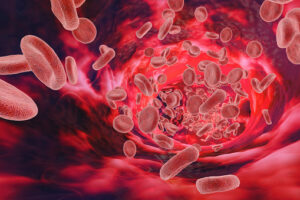Of the 45 blood group systems comprising 362 described antigens, only a few high prevalence antigens are not genetically resolved including the AnWj-negative phenotype which was identified in 1972. Anti-AnWj antibodies are usually due to the transient suppression of antigen expression (and sequential antibody development) in patients with lymphoid malignancies and autoimmune hemolytic anemia. In a small number of individuals, however, the AnWj-negative genotype is inherited in an autosomally recessive manner. To define the AnWj-negative blood group, researchers identified individuals with the inherited AnWj-negative phenotype, and whole genome exome sequencing was performed. A large homozygous deletion in exons 3 and 4 of the MAL gene, the integral membrane myelin and lymphocyte proteolipid, was identified. Notably, no mutations or deletions were found in the genes for CD44 or Smyd1, which have both been reported to be associated with the AnWj-negative phenotype. Furthermore, AnWj-positive individuals express MAL on red cell membranes while negative individuals (both transient and inherited) do not; and erythroid cell line data demonstrate that MAL expression is required for AnWj expression but CD44 is not. Genotyping MAL may help determine whether the an AnWj-negative phenotype is inherited or due to a clinical disorder.
Reference:

